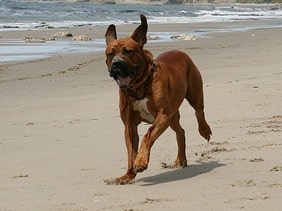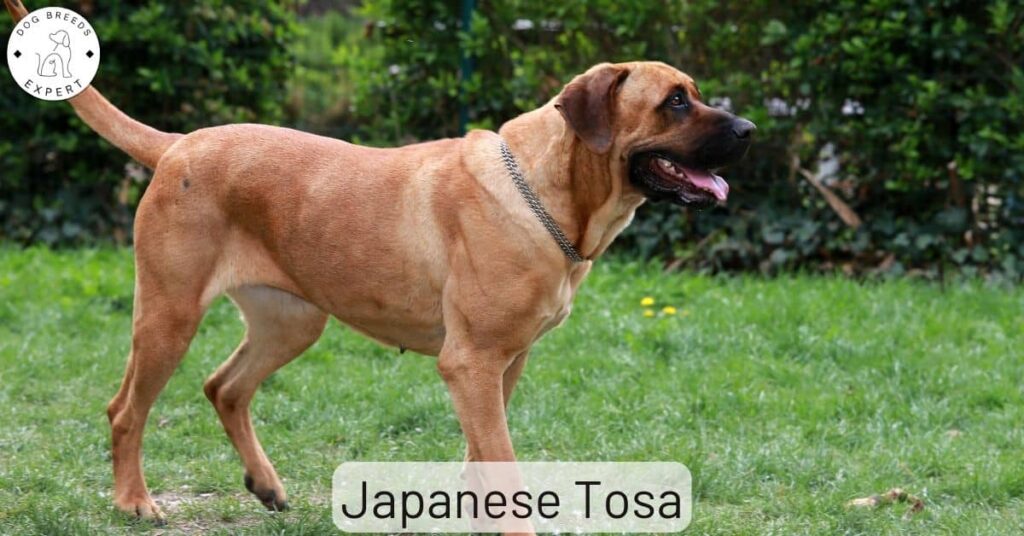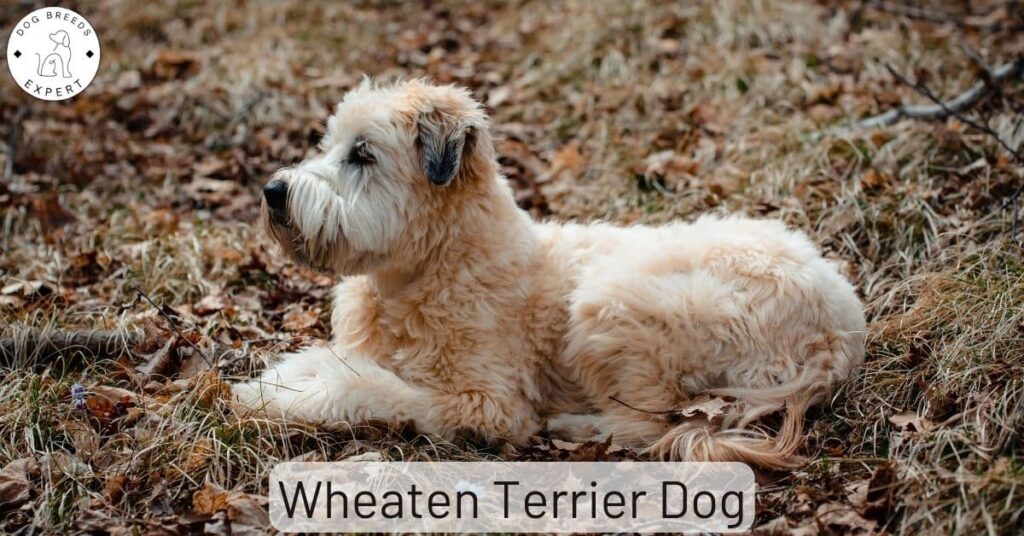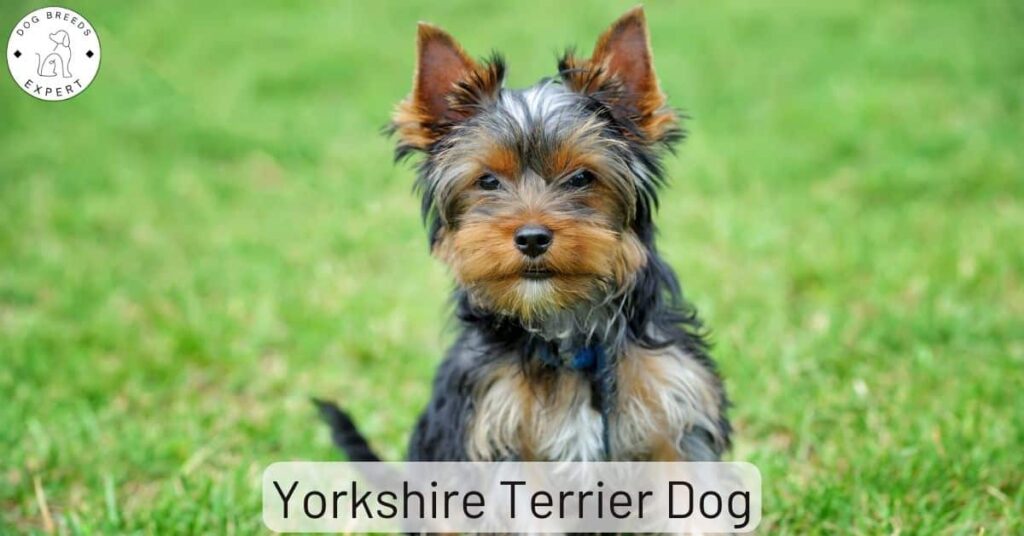The Japanese Tosa
The Japanese Tosa is a remarkable dog. Brave and strong yet loving and devoted to his family, this is one dog who, despite over 900 years of breeding by humans, has managed to keep his mind and body in perfect balance.
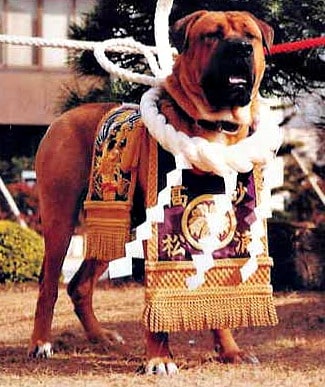
Personality And Temperament
A well socialized and mentally healthy Tosa-Inu (“Inu” means “dog” in Japanese – see also “Akita-Inu“) should be good with children, gentle and loving with his family, reserved but readily accepting of strangers and should under no circumstances be allowed to believe that he is the Alpha Male or Pack Leader.
Early socialization and training is essential as this is a big dog so you need to be able to have him under control at all times.
This is not a dog for first time owners or the elderly/infirm and not recommended for apartment dwellings or multiple dog households.
Due to his Japanese dog fighting history, the Japanese Tosa is banned in Australia, Cyprus, Denmark, Iceland, Malaysia, Malta, New Zealand, Norway and Turkey.
He is regulated in Trinidad and Tobago and the UK under The Dangerous Dog Act and is banned from all council properties by Dublin City Council (Ireland).
Many insurance companies will not insure Tosas or other Japanese Fighting Dogs such as the Akita-Inu.
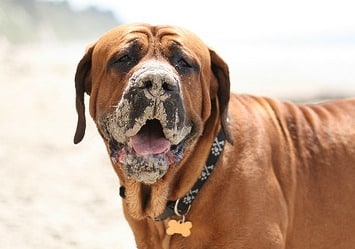
Breed History
The Japanese Tosa is an ancient breed which goes back to at least the 11th century. They originate from Tosa-Wen (Tosa Bay) in the Kochi Prefecture area of the island of Shikoku which is one of Japan’s southern islands.
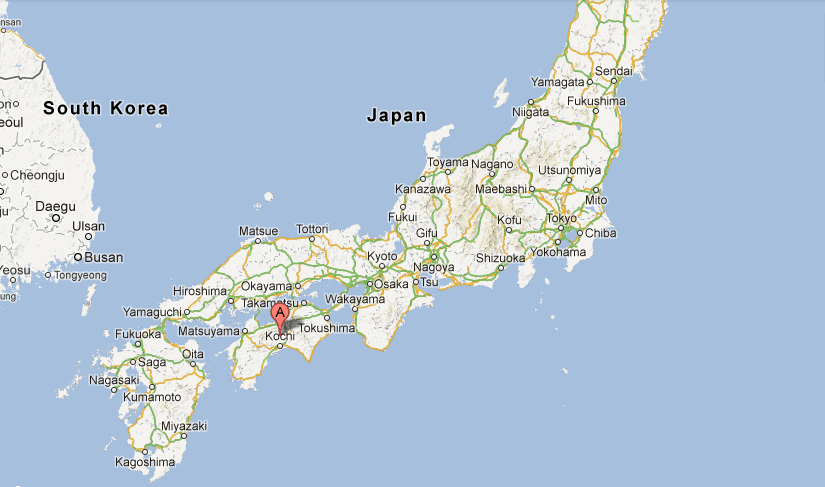
Known by a variety of names including the
- Japanese Mastiff,
- Japanese Tosa-Token and
- Tosa-Ken,
These dogs were bred for combat assistance, guardianship and for competing in dog fights.
They are considered a Japanese National treasure and Japanese Folklore tell of young Samurai Warriors being made to study Tosa fighting methods as part of their training so that they knew the true meaning of “Courage In Combat”.
The old style Japanese Tosa dogs were more of a “spitz” type dog, i.e. they had a tailed which curled over their back, similar to the Akita-Inu. Once Westerns came to Japan and brought their much larger dogs into the ring, some Japanese owners decided to modify their breed to increase the size.
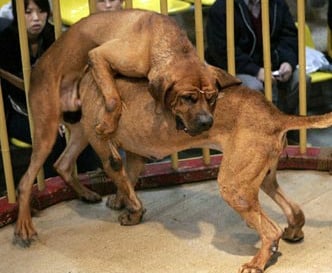
Subsequently, over time, the Japanese Tosa was mixed with the Bulldog and Bull Terrier (for diligence and stubbornness), Mastiff and St Bernard (for strength and size), Great Dane (for height), Pointer (for focus), Bloodhound (for extra skin), Dobermann (for intelligence) and the Dogue De Bordeaux (for bulk).
Dog fighting is different in Japan compared to Western dog fights. In Japan, they are done in public places and owning champion dogs can be very lucrative. Quite often the winnings from a dog fight pays for the entire family’s living needs as champion dogs can be worth up to six figures.
For this reason (along with a few others) it is very difficult as an outsider to get our hands on your own Japanese Tosa, especially if you want an “authentic” one from a Championship Japanese background.
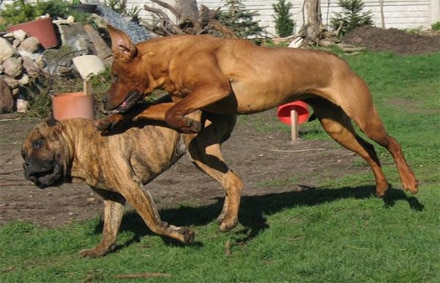
Japanese breeders tend not to sell any of their litter, instead training them up to become the next generation of champions. Only male dogs fight, bitches are used purely for breeding purposes although most females are “rolled” or fight at least once.
This is predominately to observe their aggression levels so that the owner can have an idea on the fighting qualities of a bitch before deciding if she is to be used for breeding.
In fights, the Japanese Mastiff is expected to stay silent throughout. Growls, barks and whimpers are frowned upon and can lead to disqualification. The object of the dog fight is not to harm the other dog as is the way of the Western fights, but to dominate the opponent and pin them down.
The rules are the same as Sumo Wrestling rules. Vets are on hand for every fight as are the owners who often jump in to pull dogs apart. Any noticeable wounds and the fight immediately ends.
Here is a video taken in Japan of the presentation of a champion Japanese Tosa – (no fighting in this video.)
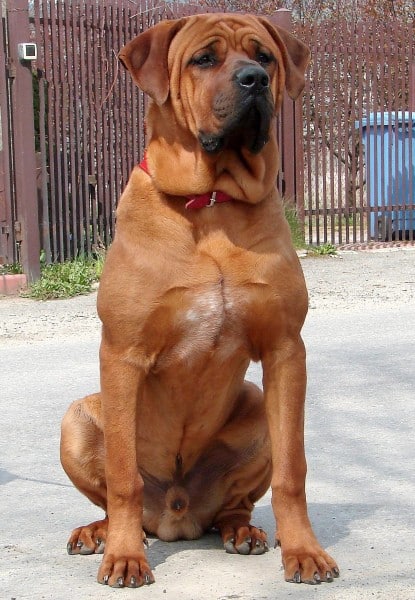
Vital Statistics
Western Bred Dogs:
- Weight: 40 – 77kgs ( 90- 170 lbs)
- Life Expectancy: 10 – 12 yrs
Japanese Bred Dogs:
- Weight: 30 – 40kgs ( 66 – 88 lbs)
- Life Expectancy: 10 – 12 yrs
Colours:
- Black
- Fawn
- Red
- Brindle
- Apricot
- White markings on chest and feet permissible
- Dark nails preferred
The dogs fight in 3 different categories: Heavyweight, Middleweight and Lightweight, hence the large range in size and weights of dogs.
Japanese bred dogs tend to be smaller than their Western counterparts.
Ease Of Training
The Japanese Tosa is intelligent and fairly easy to train. And training is essential to keep this dog from becoming a danger to be around. He must be socialized from an early age as a puppy and trained using positive reward-based methods.
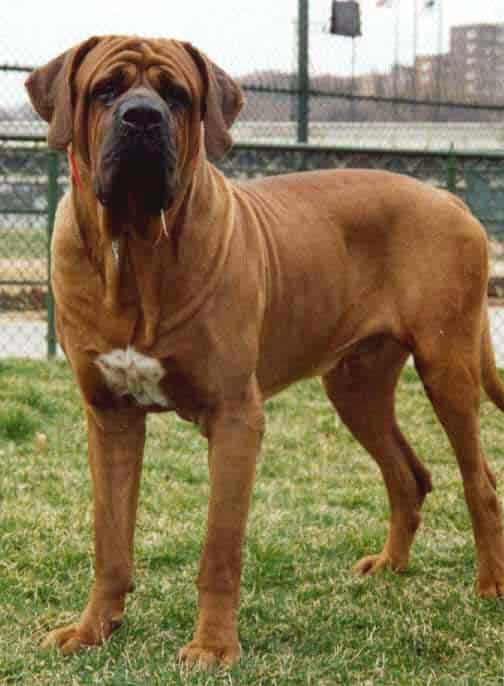
He needs a decent amount of daily exercise to keep his well-developed muscles in shape and to keep him mentally at ease. A safe enclosed area such as a large back garden is recommended for him to run around in off leash.
Keep an eye out if there are other dogs around him which your Tosa Inu doesn’t know – he may be aggressive towards them.
Protection
Japanese Tosas are natural guardians and protectors. His massive size and deep bark should be enough to scare off any intruders!
The Japanese Tosa can be reserved with strangers so they must be introduced to any newcomers in the proper manner. Done this way, they should accept the stranger as a non-threat.
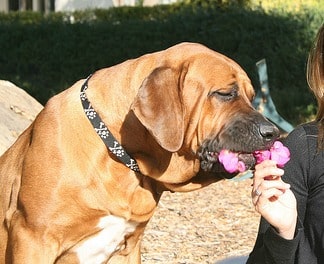
Grooming
This Japanese Mastiff has a short, dense, coarse coat which requires minimum grooming and maintenance. Although they are not known to be good for allergy sufferers, they are light shedders.
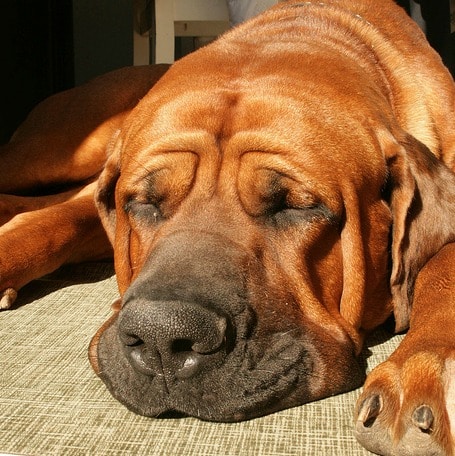
Health Considerations
Despite their fighting history, this is a fairly healthy lot! The conditions to be aware of include;
- Bloat
- Eye issues can be common (check to see if your dog/puppy’s parents have been registered with CERF – The Canine Eye Registration Foundation)
- Hips and Elbows (check to see if your dog/puppy’s parents have been registered with the OFA – Orthopedic Foundation of Animals)
Famous Japanese Tosa
These dogs are so rare that I couldn’t find any! Let me know of you know of any.
